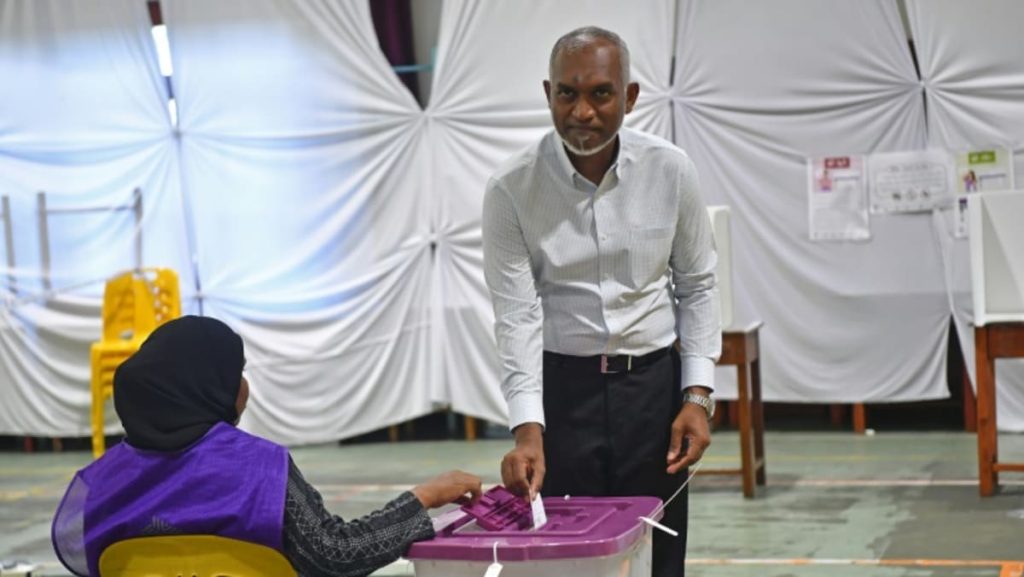its traditional ally, India. The Maldivian Democratic Party (MDP) is projected to win between 60 to 62 seats in the 87-member parliament, according to local media reports. The result would give President Ibrahim Mohamed Solih’s party a two-thirds majority, allowing it to pass legislation unopposed. The MDP’s victory is seen as a blow to the opposition coalition, which includes the Progressive Party of Maldives (PPM), the People’s National Congress (PNC) and the Maldives Development Alliance (MDA).
The Maldives, an archipelago of more than 1,000 coral islands, has been traditionally aligned with India, but in recent years, it has been moving closer to China as Beijing ramps up its investments in the country. China’s Belt and Road Initiative, a massive infrastructure and investment project aimed at boosting China’s economic and political influence, has seen Beijing pour billions of dollars into projects in the Maldives, including the construction of bridges, airports, and ports. Critics have raised concerns about the debt burden that these projects could place on the tiny nation, which has a population of around 400,000.
The Maldives’ pivot towards China has also raised concerns in India, which sees the Indian Ocean region as its strategic backyard and has long considered the Maldives as within its sphere of influence. India has expressed alarm over China’s growing presence in the region, particularly in countries like the Maldives and Sri Lanka, where Beijing has invested heavily in infrastructure projects. Indian officials have warned that China’s investments could have strategic implications for India’s security and have called for greater cooperation between India and the Maldives to counter China’s influence in the region.
The Maldives’ parliamentary election comes at a delicate time for the country, which has been mired in political turmoil in recent years. In 2018, former President Abdulla Yameen was defeated by Ibrahim Mohamed Solih in a surprise election result that was widely seen as a victory for democracy in the country. Yameen, who had strong ties with China, was accused of corruption and human rights abuses during his time in office, and his government was criticized for cracking down on dissent and undermining democratic institutions.
Since coming to power, President Solih has sought to rebuild ties with India and other countries in the region, but the Maldives’ growing ties with China remain a cause for concern for some observers. Critics argue that China’s investments in the Maldives are part of a larger strategy to expand its influence in the Indian Ocean region and could ultimately undermine the country’s sovereignty. However, supporters of the government argue that China’s investments are vital for the country’s development and that the Maldives should not limit its options by aligning exclusively with one country.
As the Maldives’ ruling party looks set to secure a two-thirds majority in parliament, the country’s future direction is likely to be shaped by its relationship with China and India. The election result has raised questions about the Maldives’ strategic alignment and its ability to balance the competing interests of its regional neighbors. Moving forward, the Maldives will need to navigate its relationships with China and India carefully to ensure its economic development and security interests are protected while also safeguarding its sovereignty and democratic values.


